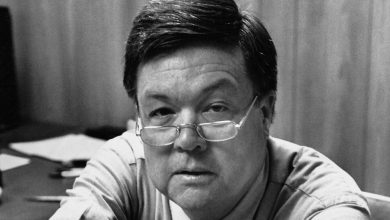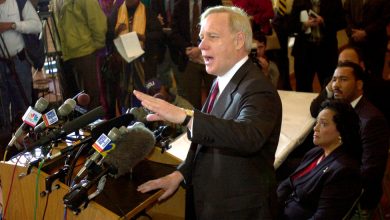No Better Time to Be a Catholic

When I began writing a column for this newspaper, I was by no means its first Catholic columnist, but I was probably the first representative of conservative Catholicism, a partisan of both Pope John Paul II and Pope Benedict XVI, to write regularly for The Times’s opinion pages. This created an expectation — in my own mind, at least — that when I wrote about my own religion, it would be mostly as a defender of the faith, championing church teaching and papal authority to a readership inclined to a certain skepticism about both.
Instead, the major Catholic story of my early years as a columnist was the sex-abuse crisis, where there were ideological arguments about causes and cures, but far more to lament than to champion or defend. Then in 2013, Pope Benedict resigned, a decision that I firmly believe supernaturally jolted the entire world off its comfortable end-of-history timeline and threw us into a more apocalyptic realm of populists, plagues and U.F.O.s. Obviously, that jolt affected Catholicism most of all: Pope Francis ascended, and over the past decade, the church has been governed by a liberalizing, destabilizing, provocateur pope.
This has created high drama in the church and ample opportunities for explanations of its controversies — but in those controversies I’ve found myself crosswise from the papacy itself, a peculiar position indeed for a Catholic columnist at a secular publication. I imagined myself making Catholic tradition and thinking attractive to secular and liberal readers. Instead, I’m often obliged to explain why, in seeming to move the church closer to the median secular liberal, Francis is actually driving Catholicism toward crisis.
The latest news from Rome provides yet another example of this pattern. Here you have a papal directive that seems to crack the door to (some ambiguous kind of) priestly blessings for same-sex couples, which unsurprisingly inspires talk of landmarks and revolutions and the church finally changing with the times.
And my appointed role is to be the conservative killjoy who points out that Francis is yet again widening liberal-conservative divisions without a plan for unity, that his strategy of trying to change Catholic practice without changing Catholic teaching is late-Soviet in its ideological acrobatics, and that (to select a few initial reactions from around the world) a church wherein priests in Austria are basically ordered to bless same-sex couples, while priests in Malawi, Zambia and Nigeria are basically told to ignore the Vatican, is not a sustainable dynamic.
But it’s Christmas, a time for killjoys to fall silent, so let me say something a little more encouraging. In one of the anguished reactions to the latest papal provocation, the British Catholic convert, Gavin Ashenden — a former Anglican priest, indeed a former chaplain to Queen Elizabeth II — enumerates all the ways that Francis seems to be undermining church teachings, describing the impossible dilemmas facing conservative Catholics, and ends with a cri de coeur: “Who would choose to be a Catholic at a time like this?”
To which I would submit, in perfect seriousness, that there is no better time to be a Catholic than this one.
Not because the trouble in the church isn’t grave. Catholicism is clearly in the midst of one of its periodic convulsions and crises of authority. In my own book on the Francis pontificate, I drew analogies to the Arian controversies of the fourth century and the Jesuit-Jansenist struggles of the 1600s, but the Great Schism of the Middle Ages always looms as a more extreme possibility.
But the crisis of Catholicism is inextricably bound up with the larger crises of the West and indeed the entire world. What is the relationship between a liberalism that controls the organs of authority and a reactionary and populist resistance? What kind of successful cultural settlement is possible on the far side of the sexual revolution? Can a liberal-individualist society avoid falling prey to despair, sterility, even extinction? Can a conservative alternative be something more than a truculent remnant, an anachronistic fringe? Does the future belong to the secular progressivism of an aging West, the supernaturalist Christianity of a youthful Africa, or to the collision of both with some sort of emergent post-Christian spirituality, the rise of techno-religion or the return of pagan magic?
These are general questions, not just Catholic ones, but they are distilled in specific ways in the clash between Francis’s liberalization project and the conservative and traditionalist resistance. And how the world’s largest hierarchical religious institution passes through this crisis, how these questions are fought over and resolved inside a billion-member church, will play a central role in deciding what kind of civilization takes shape in the future — beyond the present era of acceleration and reaction, utopianism and despair.
Like Ashenden, I am a convert to the Catholic faith, and like Ashenden and many others, I sometimes imagined the church under its conservative popes as a bulwark against the crises of late liberalism, a bastion of tradition and (relative) certainty in a time of decadence and dissolution. When I look back at my writings and my feuds early in the Francis era, I can see in them my sense of betrayal that the papacy seemed to be abandoning this mission, that Francis was deliberately bringing a kind of messiness to the papal office instead of being, well, a rock.
But I have come to terms with this change. Whatever papal authority means, the church’s history shows that it’s fully compatible with periods of deep internal Catholic turmoil. This is not exactly pleasant to live through, it raises all kinds of difficult questions for individual Catholics, but it does not somehow make Catholicism the wrong place for a religious believer, a would-be follower of Christ, to be planted. To the contrary: As I have become more doubtful of the church’s certain authority, I have become much more convinced of its importance, its decisive part in revealing God’s intentions and history’s ultimate direction.
This is something that, in their own way, more liberal Catholics have always understood. At various times in the John Paul II era there would be complaints from conservative Catholics, asking why, if liberals believe so intensely in moral and doctrinal transformation, if they are so committed to having (for instance) married or female clergy, intercommunion with other Christian churches, acceptance of homosexuality and contraception and even perhaps abortion, they don’t join one of the numerous Christian bodies where those transformations have taken place? Why be a dissenting and disgruntled Roman Catholic when you can just be a faithful Episcopalian or Congregationalist?
The answer, surely, is that the religious-liberal project believes itself to be God’s project, that its tireless advocates believe themselves to be doing the Holy Spirit’s work, and it proves very little about God’s ultimate intentions if a few modestly sized bodies in the firmament of mainline Protestantism embrace the sexual revolution. You will only know and prove that God wants liberalization when liberalization comes to the church of Rome and its billion-odd Catholics. You can’t be fully vindicated, fully assured of Providence’s favor, unless you change that church.
A similar logic applies to conservative Catholics today. If they are truly on God’s side against an erring pope, they will almost certainly be vindicated within the Catholic Church eventually (presuming that the events of the Book of Revelation do not intervene). And the means of that vindication will probably be less any kind of public argument, as important as those may be, and more a personal willingness to practice and transmit the faith through adversity, to model fidelity and charity, to play an ordinary part in working out the destiny of Christianity’s most important church.
Now, the most stringent sort of conservative Protestant will naturally disagree with my assessment of the Roman church’s importance and see in Rome’s crisis simple vindication for Calvin or Luther or their contemporary heirs. And people who are personally wounded or devastated by some particular aspect of the Catholic crisis, who face not just a general spiritual challenge but some specific form of mistreatment, will not be comforted by an argument that stresses Catholicism’s general providential significance. If you are drawn or tied to the Roman church but feel that in the present chaos you cannot be a faithful Christian except in Eastern Orthodoxy or Anglicanism or some other safer-seeming harbor, I don’t expect to win you over by saying, “Stick with us, we’re too big to fail!”
But I do think that even the quest for a safer harbor will not fully separate you from whatever destiny awaits Roman Catholicism. And if your doubts and issues aren’t personal but general and institutional, I don’t think there is a safe harbor anywhere: What the Francis era has proved above all is that no institution can simply be a fortress against the struggles of the age.
When I meet people who are becoming Catholic now, “at a time like this,” the fact that those struggles are present inside the church does not seem to especially bother them. They’re used to struggle and uncertainty, they don’t expect a simple refuge, and they recognize that any space of real spiritual power — which the Catholic Church still is, I promise — will inevitably be a zone of contestation as well.
As it has been from the beginning, from failed and feckless popes all the way back to failed and even treacherous disciples. If the story that Christians hold up for the world a few days hence is really the greatest and most important ever told, then Christianity will come through this crisis as it has come through past ones. And whether you’re a liberal, a conservative or just a believer trying to stay out of the crossfire, you should feel confident that what happens inside Roman Catholic Christianity will show some of those ways through.
Merry Christmas.
Breviary
Cardinal Gerhard Müller against Pope Francis.
Tyler Austin Harper on the bonfire of the humanities.
Tyler Cowen goes deep into Argentina.
Julianna Ress on the unnecessary back story, Wonka edition.
Curtis Yarvin against Marc Andreessen.
Ted Gioia on the coming age of microculture.
This Week in Decadence
— Erik Hoel, “Excuse me, but the industries A.I. is disrupting are not lucrative” (Dec. 8)




